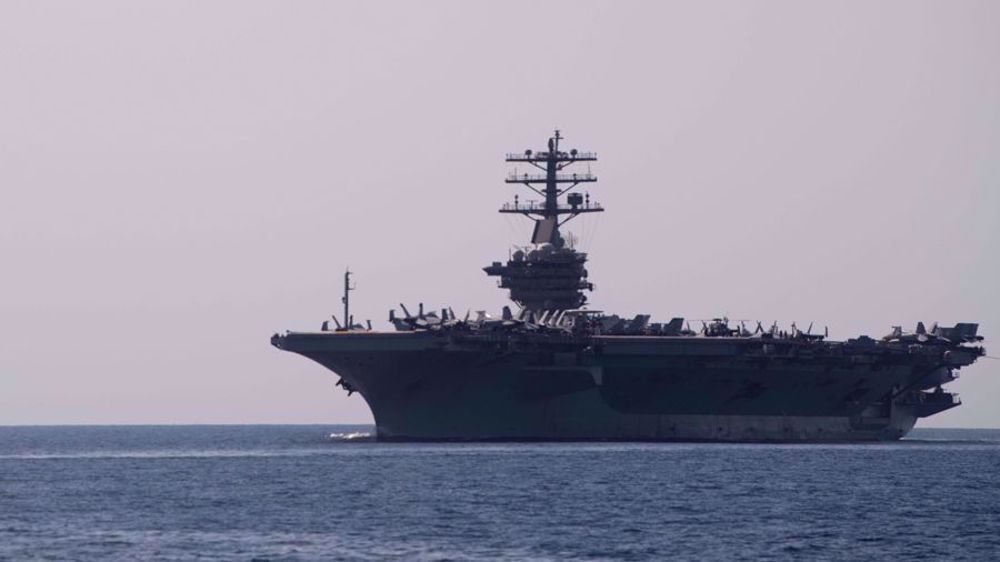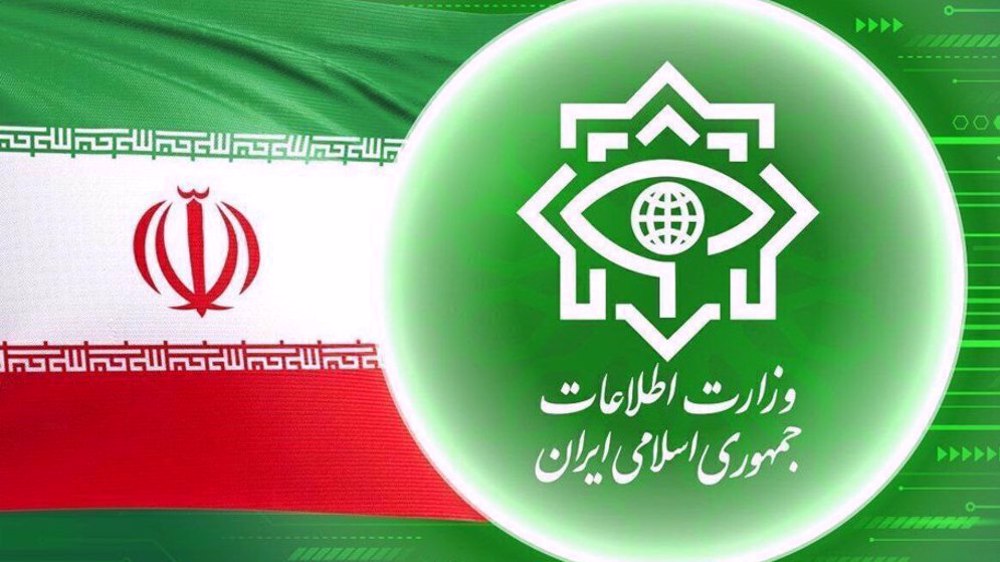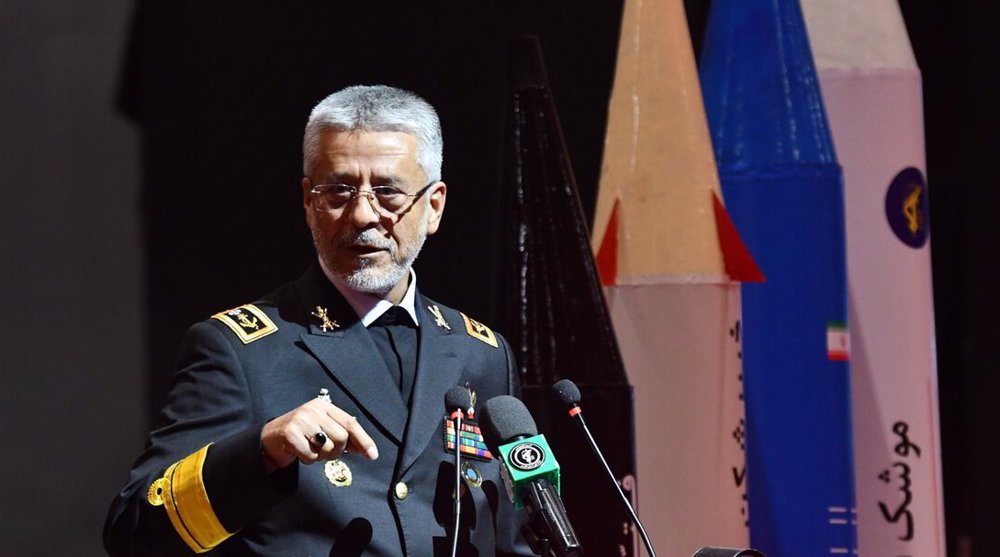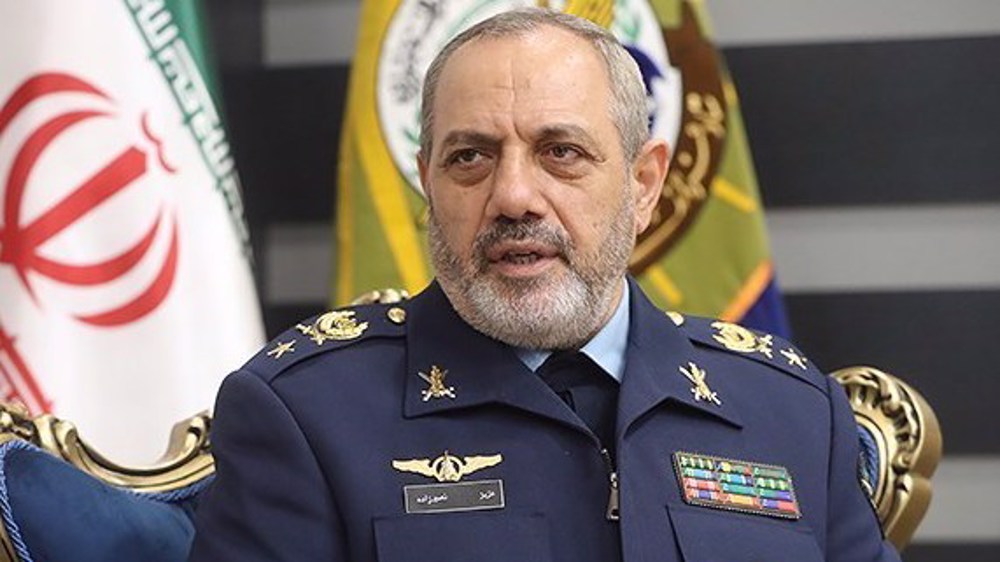Iran in full control of Persian Gulf, says IRGC Navy commander
The commander of the Islamic Revolution Guards Corps (IRGC)’s Navy says Iran is in full control of the Persian Gulf region and monitors all movements by extraregional forces that are present in these waters.
“Today, we have full control over the Persian Gulf and dominate the entire waters. The permanent presence of the Basij force has provided us with adequate manpower to have complete control of the region. At the same time, we monitor all developments using electronic and electro-optic systems,” Rear Admiral Alireza Tangsiri made the remarks in a televised interview released on Sunday.
"The Persian Gulf is full security," he said, stressing that only extraregional powers coming from far away to the Persian Gulf would potentially intend to cause insecurity there.
The top commander emphasized that Iran's Navy monitors all hostile foreign forces upon their entry into the Strait of Hormuz and enforces the bandwidth control code, adding, "They never enter our [territorial] waters and are constantly monitored until they get out [of the Persian Gulf]."
Elsewhere in his remarks, the IRGC Navy commander added that deterrence in the face of hostile forces cannot be achieved through mere political means, but it can only be achieved "if your power exceeds that of your enemy."
“This [superior military power] will cause your enemy to step back. So, don’t think that we can make the enemy withdraw through mere political means,” Tangsiri emphasized.
He said every time that the Iranian naval forces get prepared to stage military drills, the enemy sees their operational and missile power, and this acts as a deterrent factor in the face of the enemy.
Commenting on acts of provocation by hostile forces in the Persian Gulf, he said the Americans' Persian Gulf strategy has failed, adding, "We have barred the enemy from implementing its strategy and this is why the Persian Gulf is secure."
"The US must leave the Persian Gulf region and has no option but to withdraw from the region. Americans cannot extend their stay for a long time, because the Persian Gulf belongs to Iran and the southern countries of the Persian Gulf and is a home to us and Muslim countries on the southern rim of the Persian Gulf."
Tensions between Iran and the United States have escalated in the final days of the administration of President Donald Trump.
Acting US Secretary of Defense Christopher Miller on January 3 instructed the USS Nimitz to remain in the Persian Gulf due to what he described as Iranian threats “against President Trump and other US government officials,” reversing an earlier decision to move the aircraft carrier out of West Asia.
Two nuclear-capable American B-52 bombers flew over the Persian Gulf late in December after nonstop flights to the region from their US-based hangars. The nuclear-powered submarine USS Georgia also arrived in the Persian Gulf accompanied by two American warships.
The Iranian administration has warned against any US adventurism aimed at militarizing the Persian Gulf, saying such moves would be in the interest of no country, whether in the region or elsewhere in the world.
“We do not consider the militarization of the Persian Gulf region to be in the interests of any country in the region and the world,” Ali Rabiei, the administration’s spokesman, said.
His remarks came after Iran’s Permanent Mission to the United Nations in New York, in a letter to the UN Security Council, warned against the Pentagon’s “military adventurism” and recent provocative moves in the region.
“In addition to sending advanced and highly sophisticated weapons to the region over the past few weeks, the United States has also carried out some provocative military actions, including the deployment of a number of its long-range strategic bombers in the Persian Gulf in recent days,” the mission said in the letter.
Read more:
Russian court orders Google to pay staggering fine of $20 decillion
Yemeni forces carried out five operations in Haifa, targeting six ships, in one year: Report
Israeli war machine fails to penetrate Lebanon despite barbaric bombardment: Houthi
VIDEO | Is West's dominance over?
VIDEO | Five Syrians killed in Israeli airstrikes on al-Qusayr near Homs
VIDEO | South African resistance leaders reflect on ways to overcome Israeli aggression
VIDEO | Press TV's news headlines
VIDEO | Netanyahu pressured on a ceasefire












 This makes it easy to access the Press TV website
This makes it easy to access the Press TV website